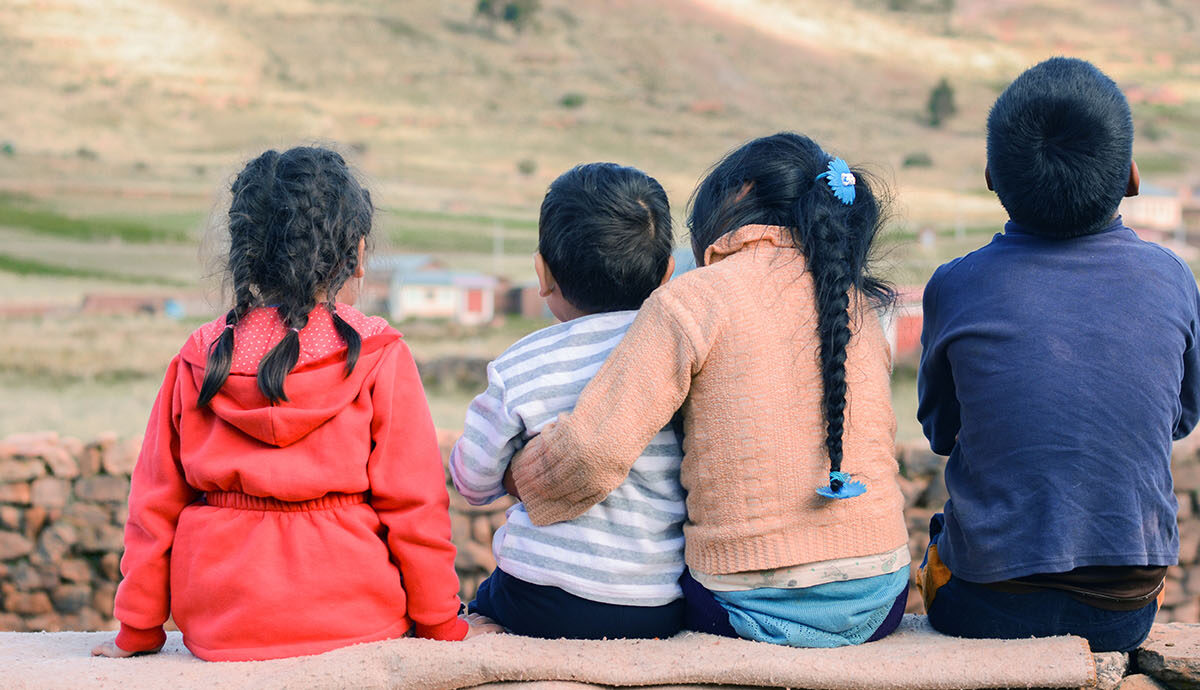November 16, 2023
Native American Heritage Month and National CASA/GAL’s commitment to advocating for Native children and youth
Native American Heritage Month is celebrated in November of each year. It’s an important awareness month for our country, Native Americans, and CASA/GAL programs. CASA/GAL volunteers advocate for Native American children and youth in the child welfare system throughout the country in both state and Tribal courts, and there are many factors that contribute to their effective advocacy efforts including culturally sensitive training and a strong understanding of the laws that govern child welfare for Native American children.
There are nine Tribal Court CASA programs across the country including the newest program, CASA of the Gila River Indian Community Court, in Arizona. The National CASA/GAL Association began its Tribal Court CASA initiative in 1994 and through the years remains deeply committed to working with children and families in Tribal courts, addressing the unique needs of Tribal CASA programs and the courts they serve. Our commitment to growing the number of children and youth served by a volunteer advocate involves a partnership with CASA/GAL Tribal programs. Working together will support progress toward our shared goal of providing a volunteer advocate for every child before the court due to abuse or neglect.
The National CASA/GAL Association is proud to have a Tribal Leadership Council comprised of local CASA program directors. The Council meets regularly to:
- Advise and partner with National CASA/GAL on policies/resources/strategies that impact Tribal programs.
- Bring the Tribal voice to National CASA/GAL’s work on developing a network wide growth process and strategy.
- Conceptualize and develop support systems, tools and communications specific to the needs of Tribal programs.
To assist with Tribal program development, National CASA/GAL’s Director of Rural & Tribal Program Development, Kimberly Delso, provides support and technical assistance to local programs serving in rural and tribal communities, supports programs that receive grant funding to ensure outcomes, and supports the advancement of new and expanded rural and tribal programs across the country.
“During my career with the CASA/GAL network, I have witnessed exceptional volunteers advocate for Native American children. Nothing is more important than cultural identity and the natural born right to know where we come from,” stated Delso. For information about creating a Tribal CASA/GAL program in your area, please reach out to National CASA/GAL Member Services.
Native children in foster care
Native American children represent a disproportionate number of children in foster care meaning that their representation in foster care far exceeds their representation in the general population. American Indian/Alaska Native children also have high rates of poverty (29%) by comparison the poverty rate for all children (16%).
On September 30, 2021, there were 9,393 American Indian/Alaska Native children in foster care (AFCARS #29). In 2021, a total of 4,206 “Native” American children (3,785 American Indian or Alaska Native children and 421 Native Hawaiian and Pacific Islanders) in 41 states were reported to have been served by CASA/GAL programs.
Haaland v. Brackeen ruling on the constitutionality of the Indian Child Welfare Act (ICWA)
The Indian Child Welfare Act (ICWA) was passed in 1978. The purpose of ICWA is “…to protect the best interest of Indian Children and to promote the stability and security of Indian tribes and families by the establishment of minimum Federal standards for the removal of Indian children and placement of such children in homes which will reflect the unique values of Indian culture… “(25 U.S. C. 1902). ICWA provides guidance to States regarding the handling of child abuse and neglect and adoption cases involving Native children and sets minimum standards for the handling of these cases. In short, ICWA seeks to keep Native children with Native families.
As previously noted, the Supreme Court issued a decision on June 15,2023, in Haaland v. Brackeen, delivering a landmark victory for tribal sovereignty. The 7-2 Supreme Court decision is an enormous victory for Native children, Native families, and Tribal Nations. Through the Court’s decision, the Indian Child Welfare Act (ICWA) has been affirmed as constitutional and Tribal sovereignty, further strengthened all while placing the best interest of Native children above all others in ICWA cases. This ruling supports the work that Tribal Nations have done over decades to ensure that Native children remain with or connected to their families, Nations, and culture throughout their lives. The court reaffirmed that “Congress’s power to legislate with respect to Indians is well-established and broad.”
Celebrating Native American Heritage Month throughout November is a reminder of the rich history and contributions of Native Americans. History shows that it is vital that children stay connected to their cultures, communities, and kin. The National CASA/GAL network is committed to preparing CASA/GAL volunteers, with culturally sensitive training, to serve all Native children who need an advocate by their side.
Additional resources:
